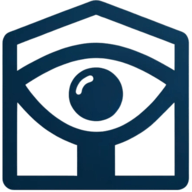6 Questions You Should Ask Before Selecting Vision Insurance
Navigating the maze of vision insurance options can be daunting, but asking the right questions can make all the difference. In this insightful Q&A, find out why understanding out-of-pocket costs could save you a headache down the road. The final insight reveals the importance of in-network discounts, a crucial factor often overlooked by many. With six key insights in total, this article promises to equip you with the knowledge needed for a more informed decision.
- Ask About Out-Of-Pocket Costs
- Clarify Vision Correction Coverage
- Check Contact Lens Coverage
- Inquire About Waiting Periods
- Know Maximum Annual Benefits
- Ask About In-Network Discounts
Ask About Out-Of-Pocket Costs
One crucial question I wish I had asked before choosing my vision insurance plan is, 'What is the total out-of-pocket cost for services not covered by this plan?' Having this answer would have greatly influenced my decision. It would have helped me better understand the true cost of the plan and potentially uncover hidden expenses. Knowing this, I might have opted for a different plan with more comprehensive coverage or lower out-of-pocket costs for non-covered services.

Clarify Vision Correction Coverage
When selecting vision insurance, it is essential to ask what vision correction procedures are covered. Some plans may cover surgeries like LASIK, while others may only cover less invasive treatments. Knowing this can help in planning for future vision care needs.
It's better to be informed about any additional costs you might incur. By asking this question, you can avoid unexpected expenses. So, make sure to clarify the covered procedures with your insurance provider today.
Check Contact Lens Coverage
Does the plan include coverage for contact lenses? This is an important question because contacts can be a significant part of vision care costs. Some insurance plans may cover the cost of lenses but not the fittings, or vice versa.
Understanding the specifics will help you manage your budget effectively. Additionally, some plans might offer a yearly allowance for contacts. It's crucial to ask and plan accordingly, so contact your provider about this detail now.
Inquire About Waiting Periods
Is there a waiting period before benefits become active? Policyholders often overlook this, but it can impact your coverage timing. Some plans have waiting periods that delay when you can start using your benefits.
It's important to know this beforehand to avoid gaps in your eye care. Additionally, understanding the waiting period can help you plan your appointments and treatments. Ask about this timeframe to make an informed decision.
Know Maximum Annual Benefits
What is the maximum annual benefit for eye exams and glasses? This limit is crucial as it determines how much of your expenses will be covered in a year. Exceeding this amount could mean paying out-of-pocket costs.
Knowing this can help in budgeting your healthcare expenses. Different plans have different caps which can influence your choice. Be proactive and find out this information to better manage your eye care finances.
Ask About In-Network Discounts
Are there discounts for purchasing glasses from in-network providers? Many insurance plans offer additional savings if you buy lenses and frames from approved providers. These discounts can sometimes be significant and make a big difference in overall costs.
It helps ensure you get the best value for your vision care needs. Being aware of this can guide your choice of providers. Ask your insurer about these discounts to maximize your benefits.

